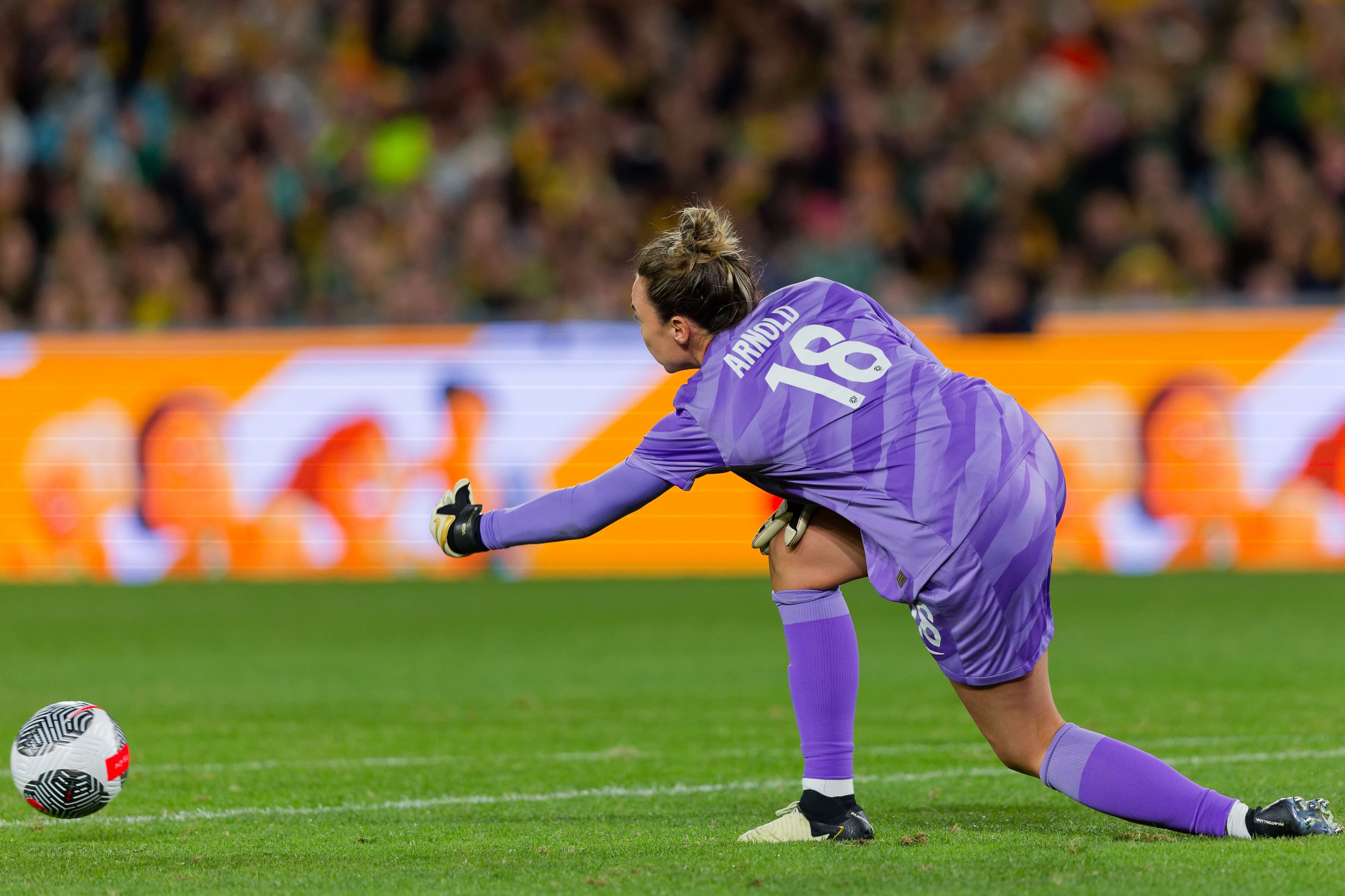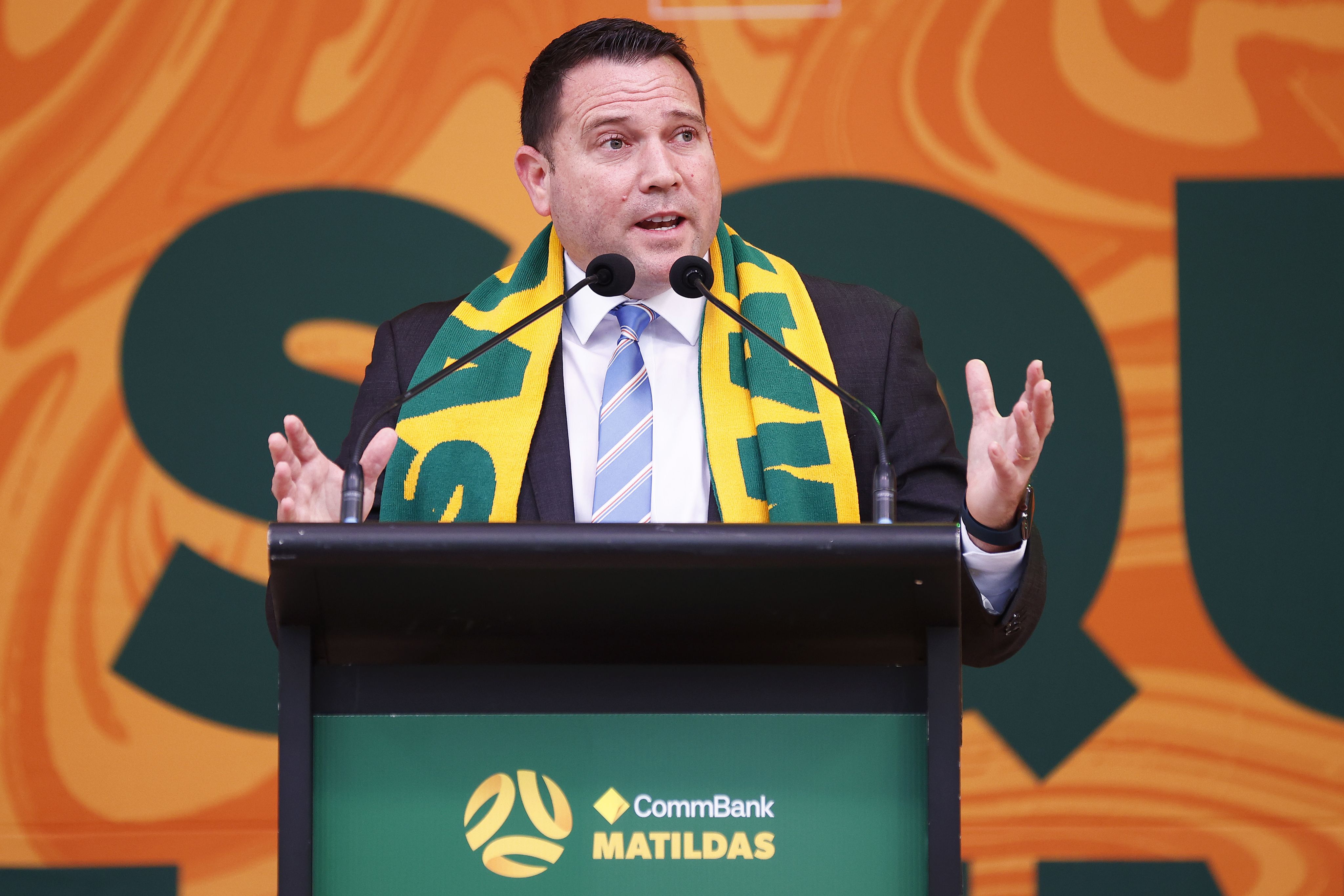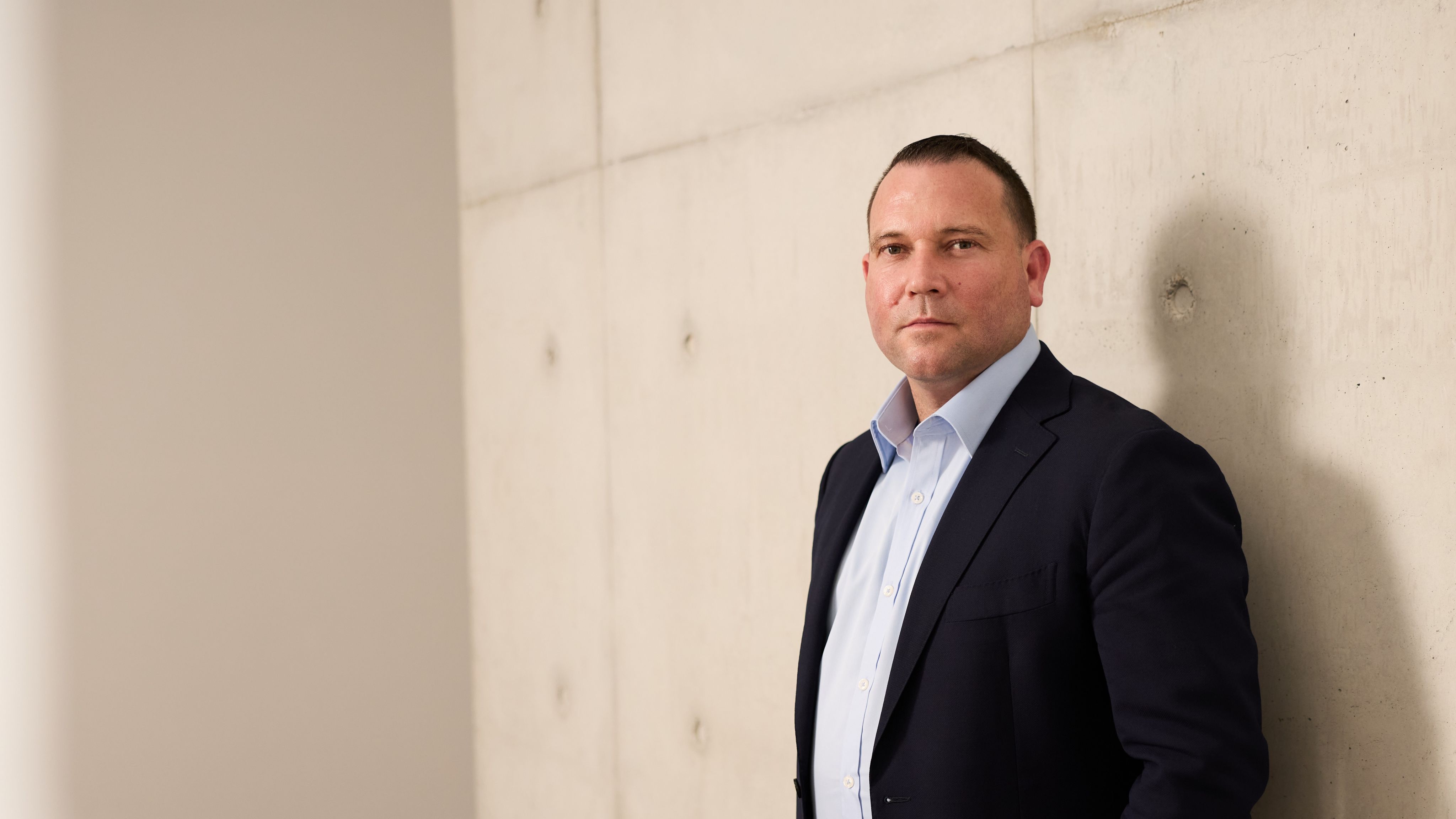
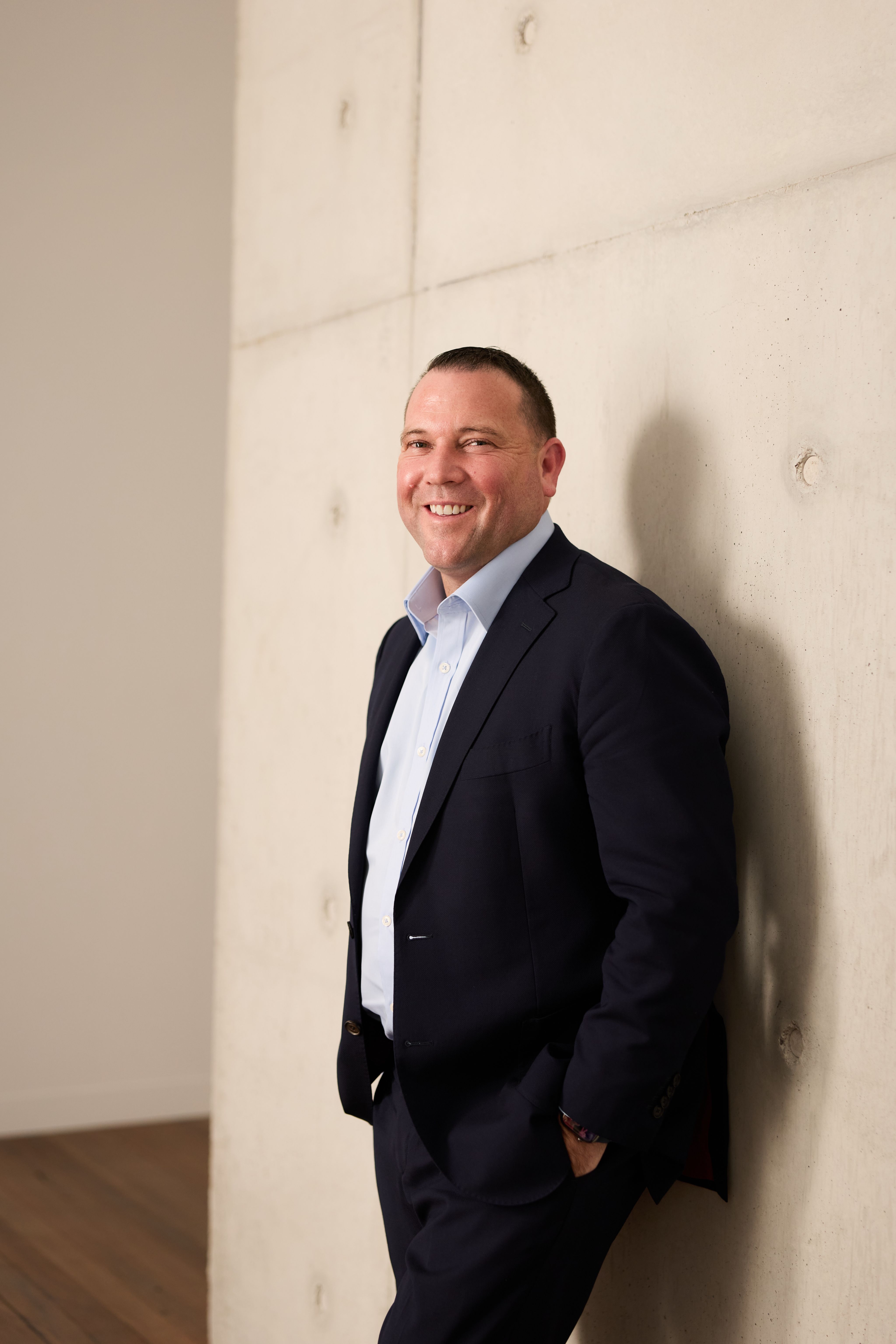
From the Matildas to the Canadian Soccer business, Bond alumnus James Johnson (Class of 2006) is passionate about using the power of sport to drive change.
How do you make a Matildas fan mad? Tell them they can’t have a Mackenzie Arnold jersey. For all the raging global success that was the Matildas’ World Cup campaign in 2023, one major merchandising miscalculation still haunts Football Australia CEO James Johnson and Bond University’s 2025 Alumni Medal winner.
“There were 19 times more Matildas jerseys sold in 2023 than in 2019, so we ran out of supply pretty quickly,” he says.
“And you couldn’t purchase a Mackenzie Arnold jersey. I think we saw a real evolution of fandom towards goalkeepers – they're often your bankers, your safe pair of hands, not the stars. But I think that really changed with Mackenzie during that World Cup.
“So yeah, if I could go back and change something it would be that from a year out, I was pushing harder to make sure we had much more stock available, and that we had a Mackenzie Arnold jersey that fans could buy.”
The unprecedented demand for Matildas merchandise wasn’t just a cultural moment, it was a commercial inflection point.
It revealed the extent to which women’s football had become a mainstream product and highlighted the need for broader considerations around licensing strategies and agile supply chains.
Under James’ leadership, Football Australia has since worked closely with Nike and other partners to ensure that merchandise strategies are aligned with fan demand and the commercial potential of women's sport.
The 2023 World Cup was an evolution of football in Australia in more ways than one. The Matildas became a phenomenon, with women and girls – along with plenty of men – who’d never been keen on the sport before creating a sea of yellow and green as they swarmed stadiums around the country.
Watching with pride was the man who had led FA’s bid for the cup, particularly when the Matildas’ semifinal match against England became the most-watched television program in Australia – ever. More than 11 million people tuned in to see the team take on archrivals the Lionesses, ultimately going down 3-1. James says it was one of the proudest achievements of his career.
“Seeing that come to life ... where the whole country got together and people just got behind the Matildas, who were the stars of the show.
“And seeing some of those figures like when the Matildas were playing the Lionesses - more people watched that game than watched man land on the moon.
“I think that was pretty spectacular. And I think that legacy will leave an impact for decades to come.”
For a man who has essentially lived and breathed sport for decades, it was quite the triumph.
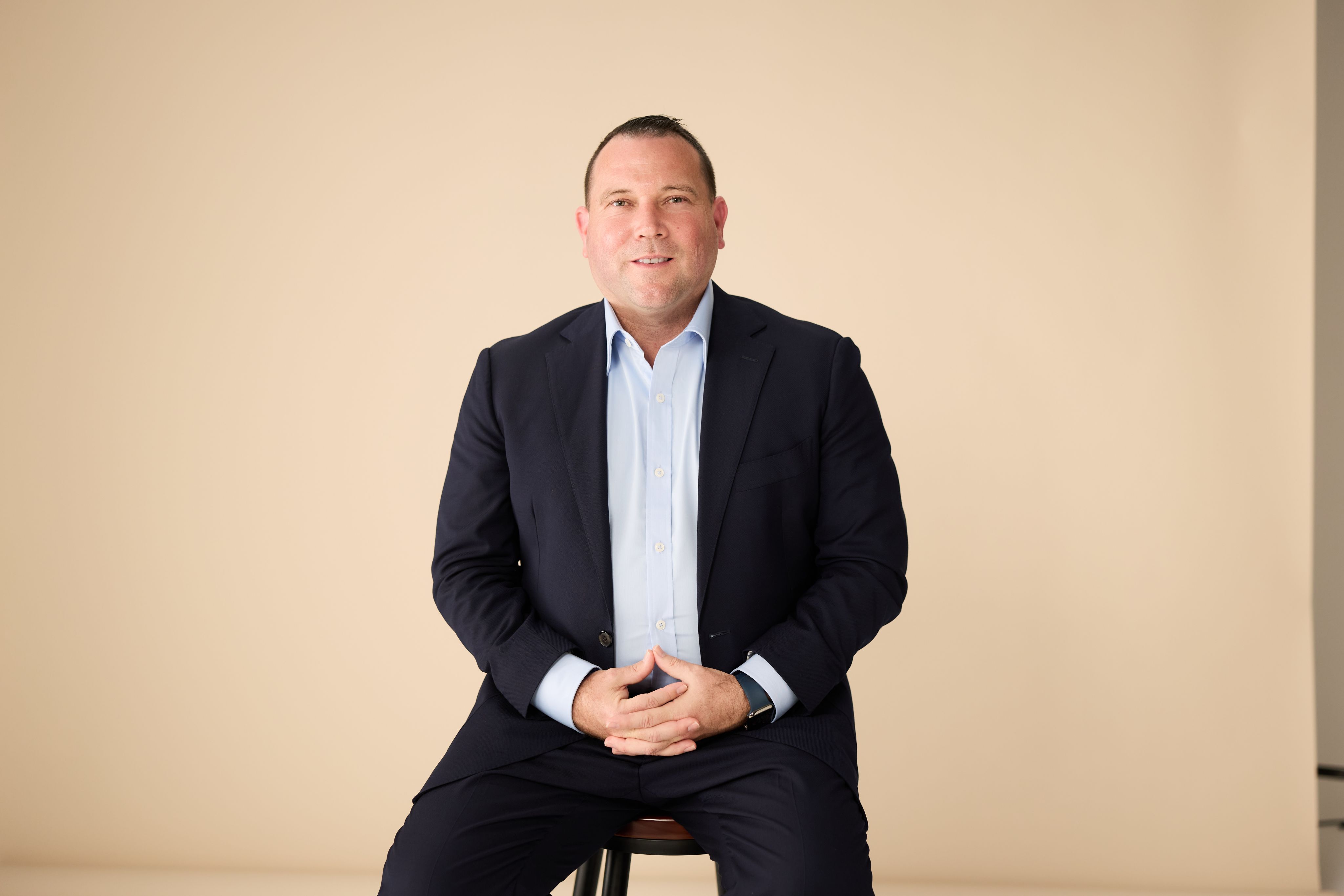
"More people watched that game than watched man land on the moon."
James, who grew up in Rockhampton and Brisbane and played football for Australia in the national U17 side, attended Boston University on a full sport scholarship before undertaking a Juris Doctor at Bond in 2006.
After a short stint in a law firm, he moved into sports administration as legal counsel for the players union. That was followed by a move to Kuala Lumpur as a Director for the Asian Football Confederation before he landed at FIFA, where he headed up professional football, managing all club football worldwide.
And despite coming from a long line of Everton supporters, he spent a few years at Manchester City and City Football Group as a Senior Vice President before returning to Australia in 2020 to head up FA.
Helping make the Matildas the success story they have become was all part of a strategic vision set up by FA after the decision to separate the A League from Football Australia.
“So we govern it but we don’t run it, and the challenge at the time was how we would rebuild the Football Australia business without the A League, because that was such a big part of FA.
“The vision ... was we wanted to make the Matildas as big as, if not bigger than the Socceroos and that was what was going to fill the revenue hole, if you like, of the A League.”
Making the Matildas the commercial centrepiece of Australian football wasn’t accidental, it was a strategic pivot. In the wake of the A-Leagues’ separation, James and his team doubled down on national teams as Football Australia’s core commercial and cultural product. From broadcast rights and licensing to brand strategy – with Commonwealth Bank jumping on as naming rights partner of the Matildas – and storytelling with partners like Paramount and Disney, Football Australia reimagined the Matildas as both elite athletes and national icons. The result? One of the most valuable brands in Australian sport today.
“Over the past four or five years, it’s been a pretty phenomenal journey, the way the Matildas have become really intertwined with Australian culture, the amount of people that are watching them on TV or play at stadiums.
“And most importantly the number of kids that are playing football. Girls and boys, as a result of the popularity of the Matildas.
“It’s actually been phenomenal to watch.”
But the football phenomenon sweeping Australia brings challenges too. One of the biggest is infrastructure to accommodate all those burgeoning Mackenzie Arnolds and Sam Kerrs.
Already one of the nation’s highest-participation sports – there's daylight between the number of people who play soccer and the next biggest code, AFL – Matildas madness has seen that increase even further.
“Infrastructure is certainly a challenge. It’s a good challenge to have, but sometimes a sport can become a prisoner of its own success,” James says.
“The reality is we've got this challenge where some clubs actually don't have enough space, as in grass for their children to play.
“We need more grass, we need better facilities, we need more lights so the same facilities can be used for longer periods, particularly as we're a winter sport at community level.
“And importantly, given the uplift of young women and girls' participation we need the right changing rooms to make sure that girls feel comfortable to play.”
James and Football Australia anticipated this infrastructure pressure with their Legacy '23 strategy — a platform designed to unlock long-term government investment in football facilities. As of the end of 2023, the initiative had secured more than $398 million in funding from Federal and State Governments, with approximately $296 million directed specifically to football-related projects.
The CommBank Matildas’ success helped catalyse the Australian Government’s $200 million Play Our Way program, the largest single investment in women’s sport in the nation’s history, aimed at creating safe, inclusive, and accessible sporting facilities for women and girls across the country.
Despite these gains, over 2,400 clubs continue to operate at full capacity, and Football Australia has identified a $2.9 billion gap in football infrastructure investment nationwide.
Football Australia says addressing this shortfall remains a core priority, ensuring grassroots clubs are equipped to support the unprecedented growth in participation — particularly among women and girls — inspired by the Matildas’ historic World Cup campaign.
“These are all challenges that we continue to work through with government, but ultimately we need continued funding from state and federal government.
“The funding isn’t to build a roof on Sydney Football Stadium or Stadium Australia, it’s actually to have more fields available for local clubs across the country.”
Since James’ appointment in 2020, Football Australia has delivered record-breaking commercial results including a landmark 10-year Nike deal, reacquisition of AFC National Team rights, and the securing of FIFA Women’s World Cup 2027™ broadcast rights. In a global sporting environment increasingly defined by competition for attention and investment, he has positioned Football Australia as a globally respected, high-growth organisation, even without control of the A-Leagues.
James has been dubbed the ‘visionary guiding soccer’s revolution’ and its ‘quiet achiever’.
He sees it more as taking every opportunity to use the power of sport to drive even broader change.
“You can call this the optimistic view, but I do believe this – that sport has an ability to change, and change for the right reasons,” James says.
His next challenge is to revolutionise football in Canada. They are about to host the 2026 men’s World Cup and James will be in the thick of it as the newly minted CEO of Canadian Soccer Business.
The appointment was announced the same night he collected Bond University's most prestigious award – the Alumni Medal – for his achievements in making the Matildas the juggernaut they have become.

He’s excited to see if he can do the same for soccer in Canada – their women’s team won Gold at the Paris Olympics so they don’t lack a profile.
What they are currently missing is something an Australian CEO is uniquely placed to bring — a nickname that sticks, whether they like it or not. That, and Mackenzie Arnold.
But if James has his way, whatever nickname they choose will be on everyone’s lips.
Published on Wednesday, 4 June, 2025.
Original thinking direct to your inbox

Stories from Bond

